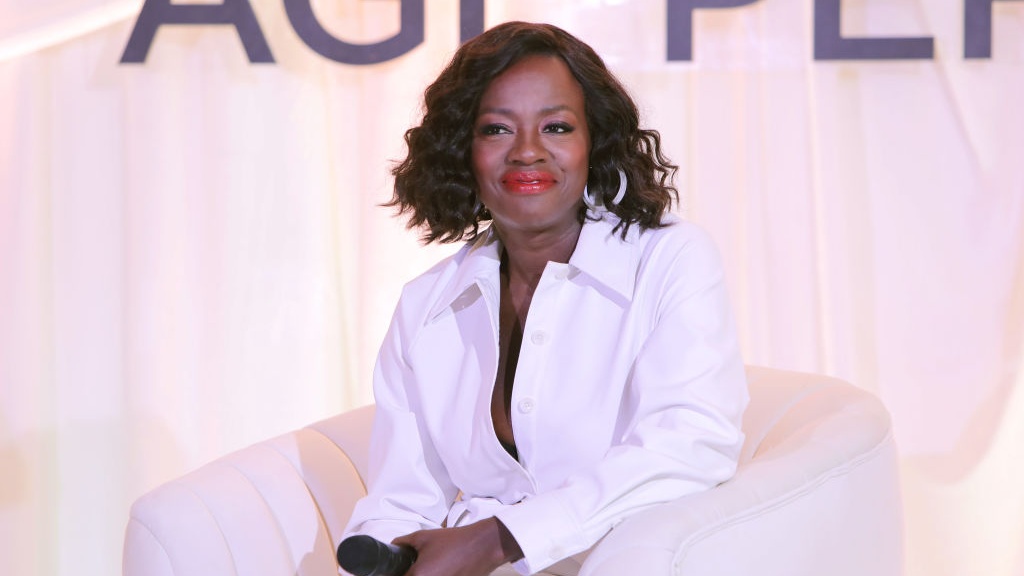Veteran actress Viola Davis is no stranger to breaking barriers as the first Black woman to win an Emmy for lead actress in a drama in 2015. But the Academy Award winner made history again this month through her appearance on the cover of Vanity Fair, which was the magazine's first-ever cover shot by a Black photographer in its 125-year history, according to CNN.
In addition to the remarkable photos from photographer and artist Dario Calmese, the magazine shared a spellbinding interview with Davis conducted by writer Sonia Saraiya.
Presenting our July/August cover star: @ViolaDavis. The Oscar winner—who’s set to star as Michelle Obama and blues legend Ma Rainey—talks to @SoniaSaraiya about her journey out of poverty and into the deeply troubling Hollywood system. https://t.co/NKm0nGeSbP
pic.twitter.com/8QlGbh3OTS— VANITY FAIR (@VanityFair) July 14, 2020
Davis speaks at length about her childhood, her struggle to make it in Hollywood and her fight for recognition as one of the best actresses in the industry. She also spoke about the killing of George Floyd and how she teamed up with Octavia Spencer and Yvette Nicole Brown to hold a protest in Studio City, California, near their homes.
But deeper into the interview, Davis said her "entire life has been a protest" against the kind of systemic racism that Black women face throughout the world. She spoke about how her Oscar, Emmy and Tony wins were the culmination of years of struggle due to the rarity of Hollywood giving Black women, especially those with darker skin, the chance to succeed on their own terms.
The How To Get Away With Murder star grew up in Rhode Island and said the women in her family helped get her through the difficulties life threw at her.
“When I was younger I did not exert my voice because I did not feel worthy of having a voice. [They] looked at me and said I was pretty. Who’s telling a dark-skinned girl that she’s pretty? Nobody says it. I’m telling you, Sonia, nobody says it. The dark-skinned Black woman’s voice is so steeped in slavery and our history," Davis said.
"If we did speak up, it would cost us our lives. Somewhere in my cellular memory was still that feeling — that I do not have the right to speak up about how I’m being treated, that somehow I deserve it. I did not find my worth on my own,” she told Saraiya.
The 54-year-old spoke passionately about how so much of her classical training at Juilliard did not take place alongside people who looked like her. Even after making it to Hollywood, Davis noted that many of the movies, shows and plays she appeared in did not center around Black people.
After graduating, she fell in love with Black writers like August Wilson, James Baldwin, Claude Brown and Nikki Giovanni.
“He writes for us. I love August, because he lets [Black characters] talk. A lot of times I don’t get to talk. And then sometimes even when I do talk, I’m like, 'that’s not what I would say,'” she said.
But now that she is wildly successful and well regarded, Davis said she has more options when it comes to the roles available to her. She told Vanity Fair that she is slated to appear as legendary blues singer Ma Rainey in a film on Netflix and will also be playing Michelle Obama in the Showtime series First Ladies.
Despite her success, she noted that white actresses are given roles for each stage of their lives and careers that simply are not available to Black actresses.
Additionally, Davis detailed her experience making The Help and explained why she agrees with the withering criticism the film has faced in recent years.
She was nominated for an Oscar for her role in the movie and credits it for helping to launch her into superstardom.
“I was that journeyman actor, trying to get in. I cannot tell you the love I have for these women, and the love they have for me. But with any movie — are people ready for the truth? Not a lot of narratives are also invested in our humanity. They’re invested in the idea of what it means to be Black, but … it’s catering to the white audience. The white audience at the most can sit and get an academic lesson into how we are. Then they leave the movie theater and they talk about what it meant. They’re not moved by who we were,” Davis said.
“There’s no one who’s not entertained by The Help. But there’s a part of me that feels like I betrayed myself, and my people, because I was in a movie that wasn’t ready to [tell the whole truth],” Davis added.
Davis also spoke about the historic nature of her photo appearing on the magazine's cover, highlighting the fraught history of the magazine itself.
In a New York Times profile of the photographer, Calmese, it is noted that Vanity Fair editor Radhika Jones has faced internal backlash from white executives because she has tried to put more Black people on the cover of the magazine.
“They’ve had a problem in the past with putting Black women on the covers. But that’s a lot of magazines, that’s a lot of beauty campaigns. There’s a real absence of dark-skinned Black women. When you couple that with what’s going on in our culture, and how they treat Black women, you have a double whammy. You are putting us in a complete cloak of invisibility,” Davis said.
The profile also features quotes from legends like Denzel Washington, Spencer and director Steve McQueen, all of whom laude Davis as one of a kind.
“The main point for me. She needs to play more characters on film. She has got to be given more attention. She goes where others dare not tread. She’s not afraid to be human. She hasn’t been given her due — that’s a fact,” McQueen told Saraiya.
